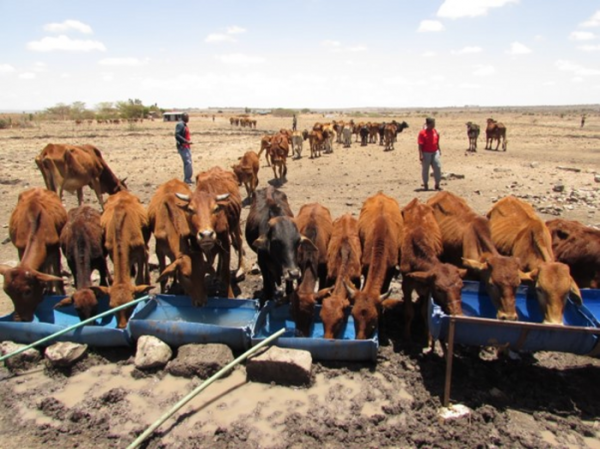The study, led by the University of Bristol, looked at changes in rainfall within the two rainy seasons in the Horn of Africa – a region hard hit by frequent drought and water and food scarcity – over the past 30 years.
Findings showed the total rainfall within the main rainy season, called the ‘long rains’, is declining across the Horn of Africa Drylands but rising in the other rainy season, known as the ‘short rains’.
These trends, which apply to Ethiopia, Somaliland, Somalia, and Kenya, led the researchers to investigate below ground water storage, a potential lifeline for drinking water provision, during these periods. Results revealed water storage has been increasing in recent decades, despite the drying effects of the declining ‘long rains’ season which historically deliver more rain cumulatively than the ‘short rains’ season.
Read more at: University of Bristol
Cattle queuing for a drink of water from a private borehole costing 5 Kenyan schillings per head per day, Kenya, September 2022. (Photo Credit: Michael Singer)


